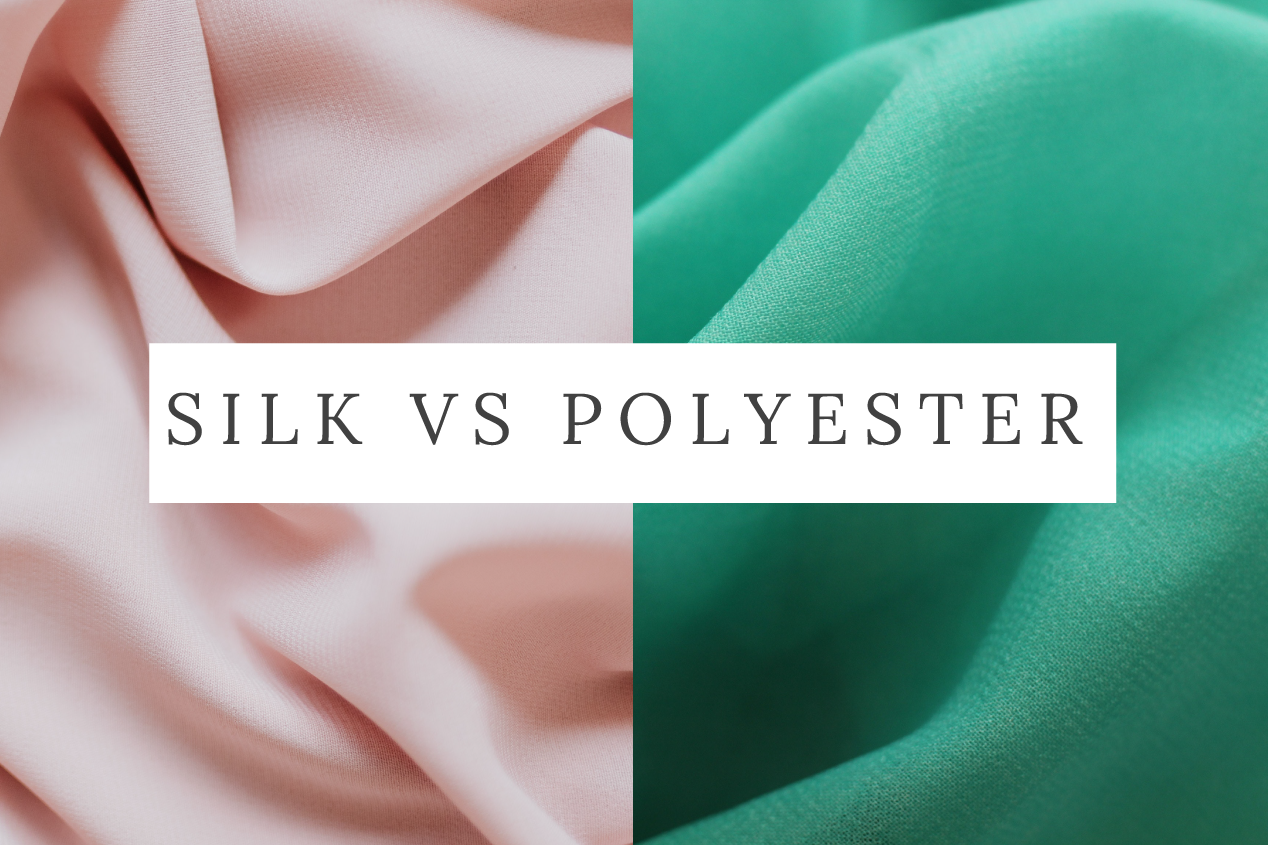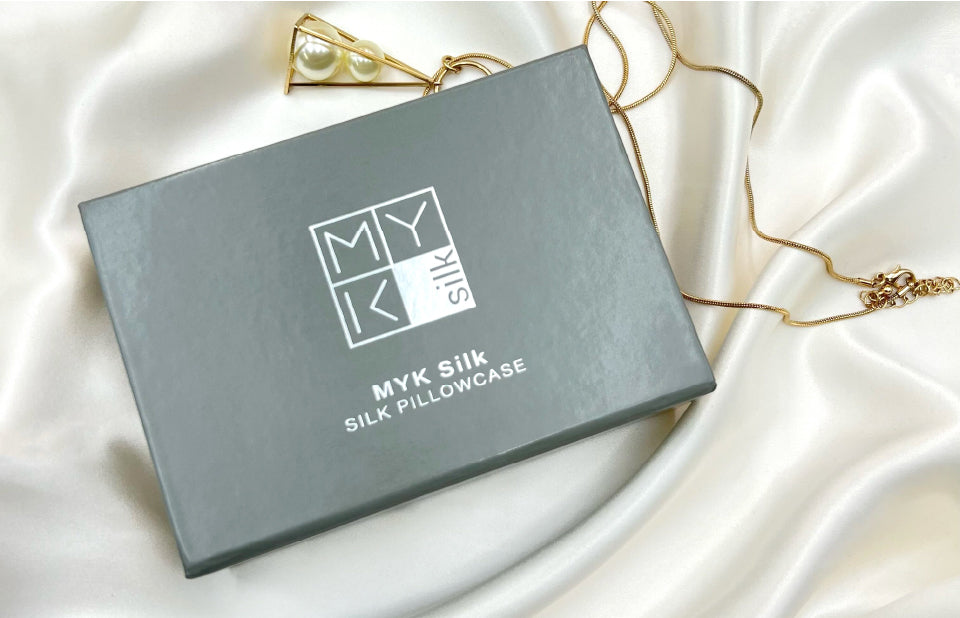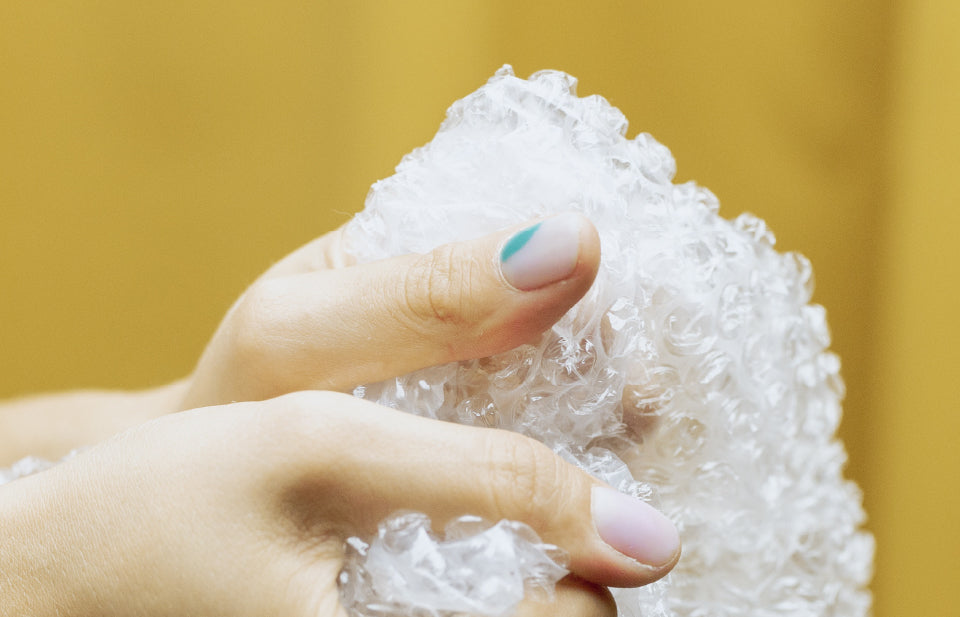Silk is a natural fiber
Natural mulberry silk is one of the strongest fibers in nature. Silk is a renewable resource, can biodegrade, and uses less water, chemicals, and energy than many other fibers like polyester.
Natural silk has many benefits such as good moisture retention, less friction, breathability and hypoallergenic properties.
Silk has a natural sheen and makes a great base layer next to your skin. Silk's natural temperature-regulating property helps your body stay cool in hot weather and warm in cold days, so you can stay comfortable during all seasons.
For an in-depth guide on the benefits of silk, click here

Polyester is a manufactured synthetic fiber, a kind of plastic and usually derived from petroleum. Petroleum is a non-renewable resource and the petrochemicals industry has complicated social and political implications.
Polyester generally has a significant negative environmental impact during production, use, and disposal. Polyester does not biodegrade like other natural fibers, it can stay in landfill for hundreds of years. Polyester products also shed microplastics or strands during washing, which often end up in oceans, endangering marine life.
- This switch neutralizes your shipping emissions and removes carbon dioxide from the atmosphere.
- Carbon removal is the process of capturing carbon dioxide from the atmosphere and then storing it.
- Funds nature-based carbon removal solutions such as reforestation and soil carbon sequestration.
Shop online with the ease of mind that you are contributing to the goal to reduce carbon emissions, fuel usage, & negative environmental impacts from shipping today at no extra cost to you!
For an in-depth explanation on carbon-neutral shipping, click here

Using Recyclable Packaging
We use 100% compostable materials for our mailing packages! To ensure less impact on the environment, we have upgraded from plastic mailers that are not recyclable. Once you get your silk goodies just simply recycle the package and join the green movement!

What is a ‘compostable’ plastic?
A compostable plastic is biodegradable in a composting environment, yielding H2O, CO2, biomass, and inorganic compounds. Biosynthetics (usually PLA or PHA) are made of renewable materials (not petroleum based). They are often considered a more sustainable option than virgin polyester.




